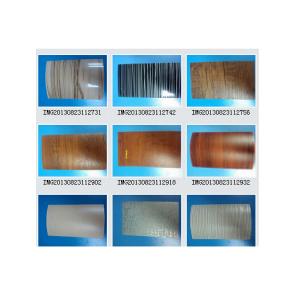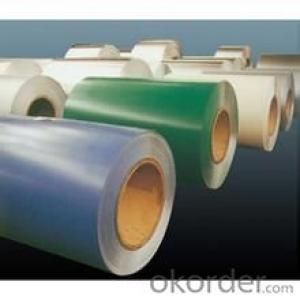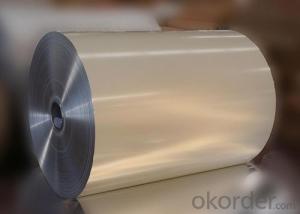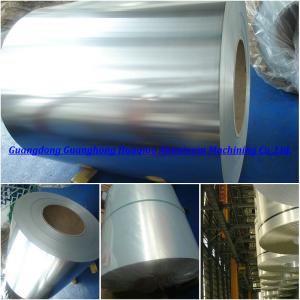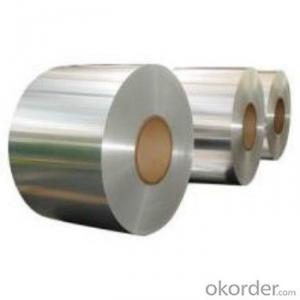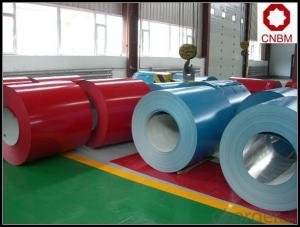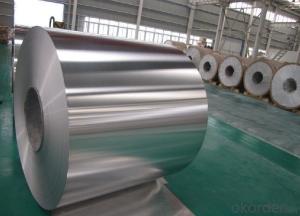Aluminum Steel Coil Plate Type Copper Tube Aluminium Fin Coil
- Loading Port:
- Shanghai
- Payment Terms:
- TT or LC
- Min Order Qty:
- 5 m.t.
- Supply Capability:
- 10000 m.t./month
OKorder Service Pledge
OKorder Financial Service
You Might Also Like
1.Structure of Aluminium Alloy Coil for Bus Stop Description:
We can produce aluminum sheet,color aluminum sheet and plastic composite panel base material. They are widely used in construction and decoration, hardware and electric appliances manufacture, automobile manufacture and other industrial and civil purposes, such as electronic capacitor, rice cooker, refrigerator, computer casting, lamp shade, air-conditioner, cosmetics cover and box, air-conditioner radiator, inner container of disinfecting cabinet, ceiling board, automobile motherboard, cover board and top board, etc.
2.Main Features of Aluminium Alloy Coil for Bus Stop :
Good Corrosion Resistance
Good Machinability
High Quality
Competitive Price
3. Aluminium Alloy Coil for Bus Stop Images:
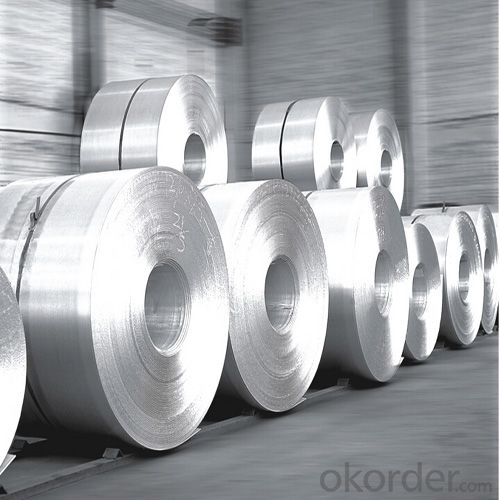
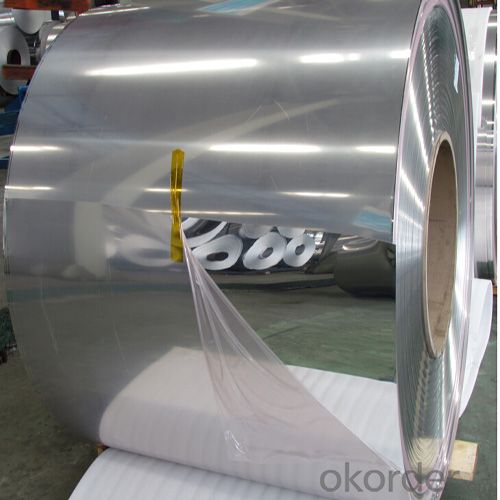
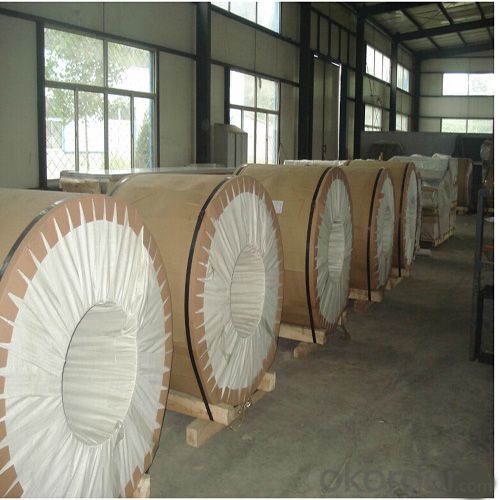
4. Aluminium Alloy Coil for Bus Stop Specification:
| Alloy No. | Thickness (mm) | Width (mm) | Length (mm) | Temper | |
| A1050,A1060, A1070,A1100 | 0.2-100 | 20-2200 | 20-8000 | O,H12,H22,H14,H16,H18, H24,H26,etc | |
| 3A21,A3003,A3105,A3004 | 0.2-100 | 20-2200 | 20-8000 | O,H14,H18,H24,etc | |
| A5052 ,A5005,A5083,A5754 | 0.2-100 | 20-2200 | 20-8000 | O,H18,H24,H32,H34,H111,H112 ,etc | |
| A6061,A6082,A6063 | 0.2-200 | 20-2200 | 20-8000 | T4,T6, T651,etc | |
| A8011 | 0.2-100 | 20-2200 | 20-8000 | O,H12,H22,H14,H16,H18,H24,H26, etc | |
5.FAQ
Q1.How long have you been in this product?
A1:More than 10 years.
Q2. What's the minium quantity(MOQ)?
A2. 5 Metric tons
Q3. How long is shipping time?
A3. 7 (ready-made products)-25 days(OEM)
Q4. How do you guarantee the quality?
A4. 1. Cooperating and Exchaning experience with sevral quoted aluminum companies
2. Japanese and Swiss production line and skilled works (regular training and testing)
3. more than 10 years production experience.
Q5. Do you have after sale service?
A5. Yes. Any quality problem occurs within one year, pls take photoes,we will be responsible.
- Q: What are the potential applications of coil-anodized aluminum coils?
- Coil-anodized aluminum coils possess unique properties and advantages, allowing them to be employed in a wide range of potential applications. Here are some of the primary areas where they can be utilized: 1. Architectural: The distinct properties of coil-anodized aluminum make it well-suited for architectural purposes, including cladding, roofing, and facades. With its anodized coating, it offers increased durability, resistance to weather conditions, and color stability, making it suitable for outdoor use in various climates. Furthermore, the coils can be shaped and formed to create different architectural elements, providing design flexibility. 2. Transportation: Due to its lightweight nature, coil-anodized aluminum is ideal for transportation applications. It can be employed in the manufacturing of parts and components for the automotive, aerospace, and marine industries. The anodized coating enhances its corrosion resistance, making it suitable for exterior components and structures. 3. Electronics: Coil-anodized aluminum coils find utility in the field of electronics manufacturing. The anodized coating provides excellent electrical insulation, which is crucial in applications necessitating high conductivity and insulation. It can be utilized in the production of components such as heat sinks, casings, and connectors. 4. Signage and displays: The vibrant and long-lasting colors achieved through coil-anodizing make it a perfect material for signage and displays. The anodized coating ensures color stability against UV radiation and harsh weather conditions, rendering it suitable for both indoor and outdoor applications. It enables the creation of eye-catching and durable signage and displays. 5. Furniture and interior design: Coil-anodized aluminum coils can be employed in the manufacture of furniture and interior design elements. The anodized coating provides a smooth, durable, and scratch-resistant surface, making it suitable for applications like tables, chairs, wall panels, and decorative elements. The wide range of available colors and finishes allows for versatile design possibilities. 6. Industrial applications: Coil-anodized aluminum coils can be utilized in diverse industrial sectors. The anodized coating offers enhanced corrosion resistance, which is advantageous in industries such as chemical processing, food processing, and pharmaceuticals. It can be used in the production of tanks, containers, and equipment that require resistance against harsh chemicals and environments. 7. Energy and sustainable applications: The lightweight nature and durability of coil-anodized aluminum make it suitable for energy and sustainable applications. It can be employed in the manufacturing of solar panels, heat exchangers, and other energy-related components. The anodized coating provides protection against weathering and corrosion, ensuring long-term performance. In conclusion, coil-anodized aluminum coils have extensive and diverse potential applications, spanning across architectural, transportation, electronics, signage, furniture, industrial, and energy sectors. The combination of its lightweight nature, durability, color stability, and corrosion resistance makes it a versatile material for various industries and applications.
- Q: Explain the distinction between standard and non-standard aluminum coils, focusing on their specifications and applications.
- <p>A standard aluminum coil is manufactured according to specific industry standards, such as thickness, width, and alloy composition, making it suitable for common applications like construction, automotive, and packaging. Non-standard aluminum coils, on the other hand, are tailored to meet unique customer requirements, featuring customized dimensions, alloys, or finishes that deviate from the norm. These are often used in specialized industries or for specific projects where standard coils do not meet the necessary specifications.</p>
- Q: Can aluminum coils be used in the production of aluminum garage doors?
- Yes, aluminum coils can be used in the production of aluminum garage doors. Aluminum is a popular material choice for garage doors as it is lightweight, durable, and resistant to corrosion. Aluminum coils are typically used to create the panels and frames of the garage doors. These coils can be easily formed and shaped into the desired design for the garage door. Additionally, aluminum coils can be powder coated or painted to provide a finished look and enhance the aesthetics of the garage door. Overall, aluminum coils are a versatile and practical choice for the production of aluminum garage doors.
- Q: why is aluminum oxide used more frequently than silicon carbide as an abrasive?What r the different types of tool feed mechanism in USM process.
- Aluminium Oxide Grinding Wheel
- Q: How are aluminum coils formed into different shapes and profiles?
- Aluminum coils are formed into different shapes and profiles through a process known as metal forming. This involves applying force to the coil to change its shape and contour. There are several methods used for shaping aluminum coils, including rolling, bending, extrusion, and stamping. Rolling is the most common method used to shape aluminum coils. It involves passing the coil through a series of rollers that apply pressure to the metal, gradually changing its shape. This process can be done hot or cold, depending on the desired outcome. Hot rolling is typically used for thicker coils, while cold rolling is suitable for thinner ones. Bending is another method used to shape aluminum coils, especially when creating curved or angled profiles. This can be done manually or using specialized bending machines. By applying force, the coil is bent to the desired shape, creating curves or angles as needed. Bending is commonly used in applications such as HVAC systems, automotive components, and construction. Extrusion is a process where the aluminum coil is pushed through a die to create a specific cross-sectional shape. The coil is heated and forced through the die, which determines the final shape of the extrusion. This method is often used for creating complex profiles with consistent dimensions, such as window frames, door frames, and structural components. Stamping is a technique used to create precise shapes and patterns on the surface of aluminum coils. It involves pressing the coil against a die with the desired design, causing the metal to deform and take on the shape of the die. Stamping is commonly used for decorative purposes, such as creating patterns, logos, or text on aluminum sheets. Overall, aluminum coils can be formed into different shapes and profiles through a variety of metal forming methods such as rolling, bending, extrusion, and stamping. These processes allow for the customization and versatility of aluminum in various industries and applications.
- Q: If you were to make something from each of these.which is more expensive? aluminum or carbon fiber ?which is stronger?What would the advantages or disadvantages of each be?
- Carbon Fiber Vs Aluminum
- Q: How do I write ionic formula for Sodium Aluminum Silicate? Please explain in a easy way ,,,,,,,,,,,,
- www.okorder /
- Q: Can aluminum coils be used in automotive suspension systems?
- Automotive suspension systems can utilize aluminum coils. Aluminum, a lightweight and sturdy material, provides numerous advantages for suspension components. Its high strength-to-weight ratio allows it to handle heavy loads without burdening the vehicle with unnecessary weight. This can enhance fuel efficiency and overall performance. Furthermore, aluminum is resistant to corrosion, making it particularly valuable for automotive suspension systems exposed to harsh weather conditions and road debris. By incorporating aluminum coils, manufacturers can ensure that suspension components have a longer lifespan and require less maintenance. In addition, aluminum coils possess superior heat absorption and dissipation capabilities compared to materials like steel. This aids in preventing overheating and mitigating the risk of suspension failure, especially during intense driving conditions or off-road usage. However, it is important to note that the use of aluminum coils in automotive suspension systems may entail certain compromises. Although aluminum is lighter and more resistant to corrosion, it may not be as strong as steel. Therefore, manufacturers must meticulously design and engineer the suspension system to ensure it can withstand necessary loads and provide sufficient support and stability for the vehicle. In summary, aluminum coils can be effectively employed in automotive suspension systems, offering benefits such as lightweight construction, corrosion resistance, and efficient heat dissipation. Nevertheless, manufacturers must carefully consider the specific requirements and trade-offs associated with aluminum usage in suspension components to ensure optimal performance and safety.
- Q: I HEARD THAT ALUMINUM POWDER TIGHTEN YOUR VAGINA BUT WHERE DO I BUY IT AND HAVE ANY ONE HEARD OF BEYDARY PILLS, I HEARD THEY TIGHTEN YOUR VAGINA ALSO AND WHERE CAN I BUY THEM
- try leaving it alone for awhile
- Q: Can aluminum coils be used in the production of beverage cans?
- Yes, aluminum coils can be used in the production of beverage cans. Aluminum coils are commonly used because aluminum is lightweight, corrosion-resistant, and recyclable, making it an ideal material for beverage cans. The coils are typically formed into can bodies and lids, which are then further processed to create the final beverage cans.
Send your message to us
Aluminum Steel Coil Plate Type Copper Tube Aluminium Fin Coil
- Loading Port:
- Shanghai
- Payment Terms:
- TT or LC
- Min Order Qty:
- 5 m.t.
- Supply Capability:
- 10000 m.t./month
OKorder Service Pledge
OKorder Financial Service
Similar products
Hot products
Hot Searches
Related keywords
